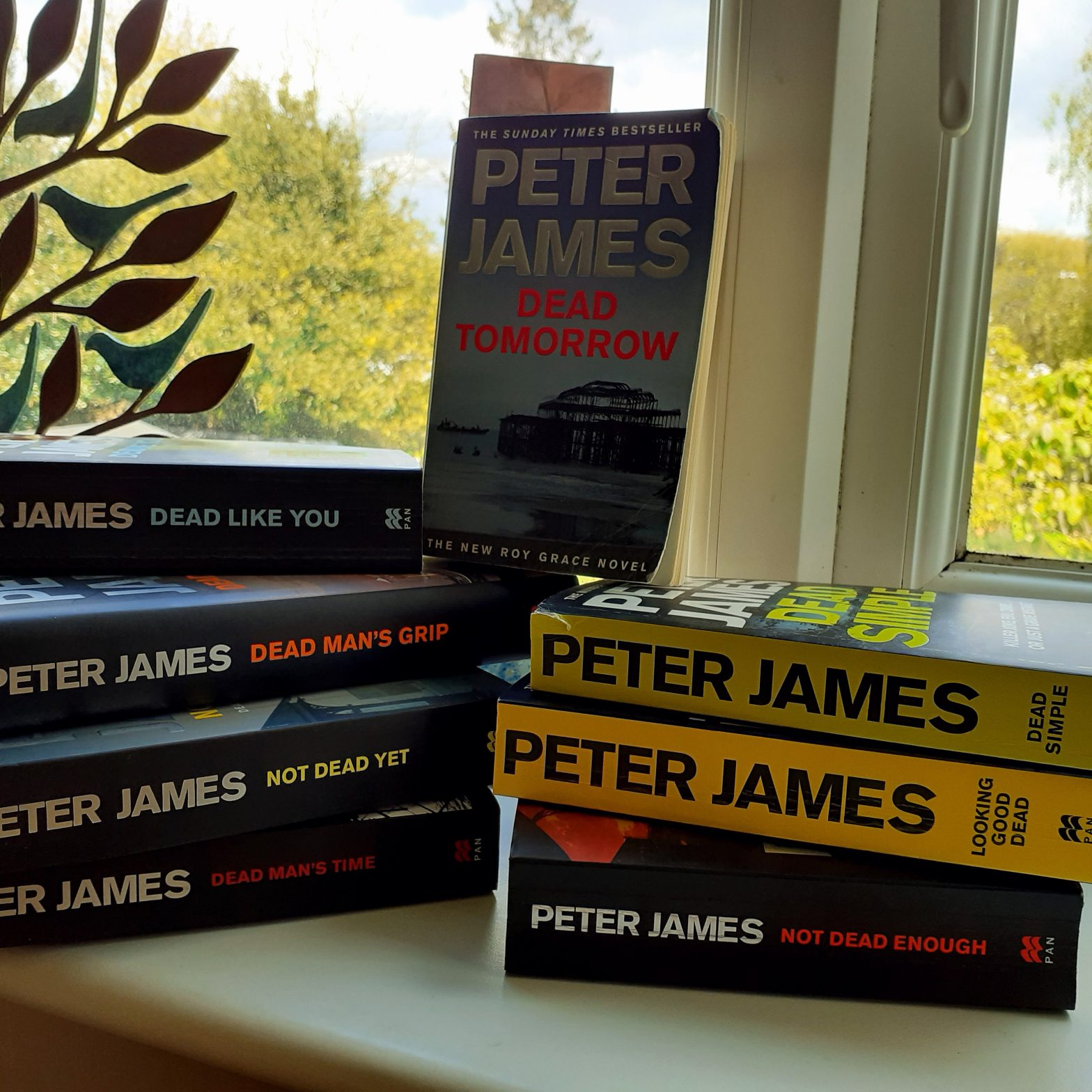Contributor: Rosalind Esche
Peter James is known amongst crime writers and readers alike for his exceptional accuracy in portraying police procedures and investigative methods. In fact his books are positively educational – whoever knew about gait analysis? I certainly didn’t until I encountered Dr. Haydn Kelly, forensic podiatrist, in the pages of a Roy Grace novel. James is meticulous in his attention to detail, his authenticity is even endorsed by the Sussex Police themselves, with whom he has developed a close working relationship over many years in the course of his research for the Grace books.
James is a master at seeding snippets of information into his plots that pique the reader’s attention, or misdirect it. Not only does he keep his readers hooked with the intricate unravelling of each complex plot, but he also leaves loose ends which trail into the next book, with minor characters reappearing, criminals resurfacing with unfinished business, with the potential for danger to Grace, his team, and his family further down the line, so that the reader cannot wait until the next book resumes the story.
One of the best things about this series is that the time lapse between each book is very brief, a matter of months, which is immensely satisfying, because readers remember characters and stories, incidents and unsolved mysteries, and enjoy a sense of continuity and immersion. This technique creates a satisfying sense of connection with characters and plots. James has an unerring instinct for drip feeding pieces of information so subtly that the reader almost absorbs them unconsciously, only to feel their full impact later when disparate loose threads are woven together into a fuller, clearer picture. There are several examples of James’s skill at this technique relating to what might be called Grace’s paranormal experiences. Grace definitely has some sort of sixth sense, James doesn’t emphasise this in an obvious way, he does it with infinite subtlety and thus renders it all the more powerful and believable.
Another great technique is the brevity of his chapters – this device keeps the plot moving along nicely, holds the reader’s attention (there are no longueurs in the Grace books) and helps the reader juggle several complicated storylines along the way. James is adept at providing regular reminders and reinforcement of information and characters, so necessary in books of such complexity and detail.
What is less talked about, if at all, is the extraordinary emotional power of this series. Running alongside the plot of each major crime investigation is the unfolding personal story of his detective protagonist, Roy Grace. Unlike many fictional detectives, Grace flouts the stereotype of the jaded, hard-drinking loner propping up bars in seedy pubs, antagonising all and sundry by day, listening to mournful music alone in his room by night. Roy Grace is a stable, level headed man, dedicated to a job at which he excels. Yet it becomes apparent that he has a haunting backstory of his own – the disappearance of his wife Sandy, many years before the first book opens, on his 30th birthday. The painful legacy of this traumatic event, and its impact on his life as the years go by, is a theme running through all the novels, drawing in the reader more deeply with each new book in the series.
James writes with sensitivity and real emotional power about his detective, weaving the thread of his private story into the fabric of each successive crime plot. He is skilled at creating in the reader emotional investment in Grace as a person, which means that while each book tells a gripping crime story with intricate twists and turns, shock revelations and misdirection, it also grips the reader’s attention with developments in his personal story, as he begins to rebuild his life.
I have been surprised by Peter James’s detective novels, I never expected to experience the emotions I feel when reading them. I can honestly say that no other crime writer has moved me in the way that he does. It is actually Roy Grace’s story which keeps the reader coming back for more, because of course his story continues to develop. Crimes are solved and cases closed, but Grace’s story is never closed, and the reader’s concern and affection for him grow with each successive book. He is an immensely likeable character, kind and decent, tough but caring, and vulnerable to his own private griefs and struggles, so we as readers become engaged in his life and want the best for him.
Considering that James is largely known for being spot on with his police procedural content (which I find strangely compelling) you might be forgiven for thinking that the books must be accurate, but somewhat dry, accounts of crime investigation and police methods, devoid of emotional engagement. This could not be further from the truth – this series packs an immense emotional punch, through the patient unfolding of Roy Grace’s story, parts of which delight you, while others haunt you long after you close each book.
